The Pastors
About 700 Reformed pastors were in charge of the towns and cities designated as places of worship by the Edict of Nantes, and lived there with their families.
Appointing pastors
In the seventeenth century, the Reformed Churches were concerned about training pastors properly and choosing the right people. Applicants for pastoral ministry were expected to have advanced education, preferably in one of the Reformed Academies. Throughout the three years spent studying theology, they learnt Hebrew, Greek and dogmatic theology. The exam was devised by the provincial synods, more precisely by a jury of seven examiners chosen by each synod. They had to make sure the applicants had impeccable morals, assess their level of education and verify the “purity of their doctrine”.
If the applicant passed the examination, he was offered a vacant position in a church but the decision as to whether or not he should be accepted was made by the religious community. The applicant preached three Sundays in a row in front of the congregation. If there was no opposition, the pastor was elected and the election affirmed in a ceremony. In most cases, the pastor remained in the same parish till the end of his ministry. He worked till he died or till he was too weak to perform his duties.
The pastor's duties
Unlike the priest, the pastor was not consecrated. He was not a man meant to perform the rituals but one who had to convey God’s words. That is why his theological and biblical training was so important.
His first task was to preach, and preparing several sermons a week took up most of his time.
From 1660, the pastor had to pay attention to every word he used in his sermons because Catholics were monitoring them, and anything could be used as a pretext to file a lawsuit or close down the church.
Teaching catechism was his second task. For Sunday afternoon services, which attracted both children and adults, the pastor used Calvin’s catechism, or others such as that of Charles Drelincourt. Pastors did little visiting except to the sick and the distressed. The elders in the consistoryvisited members of the congregation and, with the pastor, watched over their behaviour.
In the seventeenth century, the pastor dedicated his time to study. He spent most of his time in his study brushing up his sermons or a response in a dispute with the Catholics.
The living conditions of the pastor
The Edict of Nantes had anticipated pastors would be remunerated from royal funds (as opposed to the tax called “dime” paid by Protestants to their clergy) but Louis XIII put an end to this expensive commitment. It was up to the churches to pay their pastors. Their wages varied from one parish and time to another. The pastors in Charenton had the highest wages. In addition, their housing, heating and travelling expenses to daughter-churches (if there were any), synods or conferences were taken care of.
Unfortunately, the parishes paid their pastors very erratically, hence the numerous complaints about this issue at synods or conferences. Those who relied solely on their pastor’s wages for a living found it hard to make ends meet.
However, in the seventeenth century, pastors often came from well-to-do families with land or income, which safeguarded their livelihood. Moreover, they often married well-bred girls with a significant dowry.
Indeed, after the Edict of Nantes, the noble and middle class families encouraged their sons to become pastors as the position was considered honourable at that time.
The daily life of the pastor
Pastors in the seventeenth century were scholars. Besides theology studies, they had a good general knowledge and kept themselves informed about all things intellectual. Their libraries, and the large number of books they published, prove it. Pastors were married and cared about their children’s education, especially if one of their sons wanted to become a pastor. There were numerous dynasties of pastors : the Fontaines, the Claudes, the Daillés, the Dumoulins, the Drelincourts to name a few.
Pastors were often appreciated for their conversation and were entertained by the local nobility (especially if they were members of the Reformed Church) and the bourgeoisie.
In the first half of the century some pastors even maintained good relations with the Catholic clergy. Pastor Amyraut was invited for dinner by the Bishop of Chartres, and the Archbishop of Paris visited him in Saumur. It is true that he was especially famous as Professor of Theology at the Saumur Academy. However, he was not an isolated case.
But everything changed after 1660. Pastors were treated with suspicion. Their comings and goings, even their words, were spied on. Anything served as a pretext to file a lawsuit or close down churches. Several dozen pastors emigrated to Switzerland or Holland when their parish was closed down by the king.
Pastors and the Revocation of the Edict of Nantes
According to the Edict of Fontainebleau, pastors could either recant or emigrate. Out of 700 Reformed pastors in 1685, 140 recanted. But most of them left France and kept on working as ministers in their countries of adoption.
Some of them kept in touch with their former community or published brochures or books aimed at the worshippers who had stayed in France, especially “prayers for the private community of pastors”.
The pastoral letters by Pierre de Jurieu (from 1686 to 1689) had the largest circulation.
In these ten-page-long letters sent fortnightly to those who had remained in France, Pierre Jurieu mixed traditional controversy, compassion, examples of heroic resistance and exhortation. He compared the little private Reformed herd of pastors and churches to the Jewish people in exile as it is narrated in the Old Testament, and addressed his letters to “the worshippers who suffer under the yoke of Babylon”.
Bibliography
- Books
- FELICE Paul (de), Les protestants d’autrefois, Fischbacher, Paris, 1897-1901, Tome 4
Associated notes
-
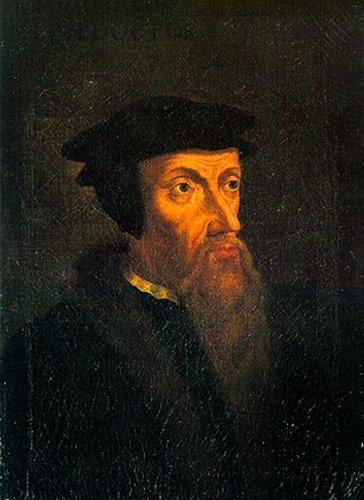
Jean Calvin (1509-1564)
A generation after Luther, the Frenchman Jean Calvin became the organiser of the Reformation : he organised the Church, shaped the doctrine and defined the role of the Church in state government. -
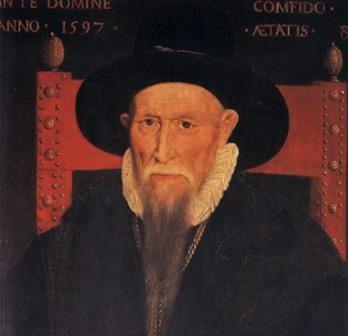
Théodore de Bèze (1519-1605)
Theodore Beza was one of the most prominent figures in the Reform movement. He supported Calvin and succeeded him as moderator, i.e. president, of the Company of pastors in Geneva.... -

The Edict of Nantes (1598)
This was Henri IV’s major achievement : the terms of this edict ensured the peaceful coexistence of Catholics and Protestants and brought a stop to all hostilities in France after 36 years... -
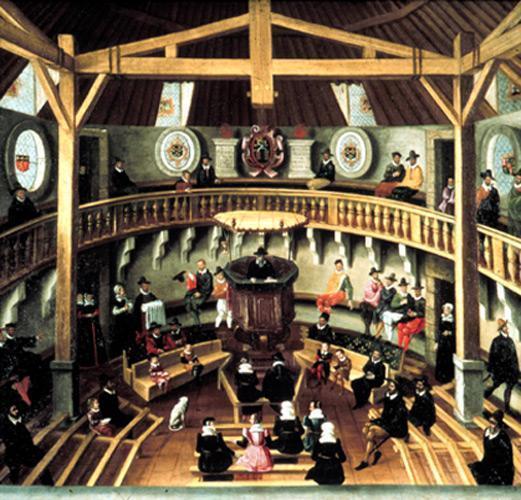
Protestant temples : from the 16th century to the Revocation
In 16th century France Reformed services were held in former Catholic churches and in new buildings. -
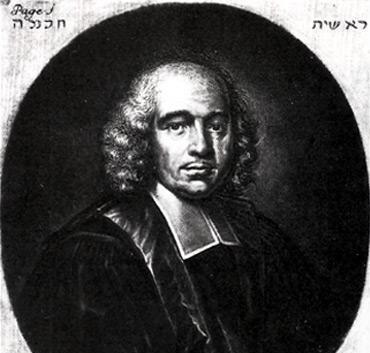
Pierre Jurieu (1637-1713)
Pierre Jurieu was a pastor of the “refuge” and defended the rights of the people in the kingdom of Louis XIV. -
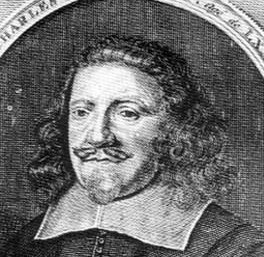
Charles Drelincourt (1595-1669)
Charles Drelincourt, a writer and a pastor, spent his life serving the reformed Churches. -
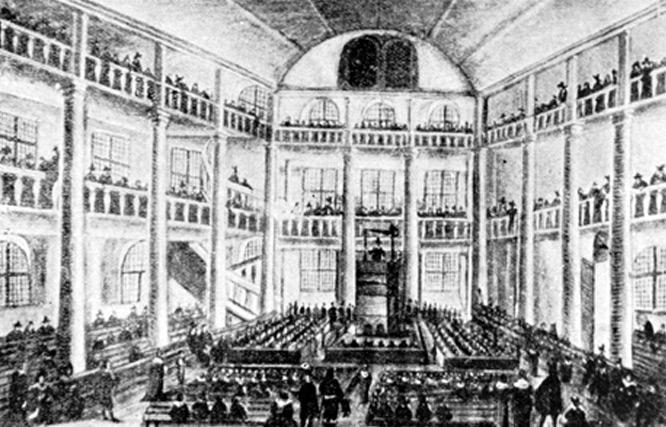
Religious practices
Communal religious practices of the Reformed Church took place in church buildings. The worshippers would go to hear the “sermon”, to celebrate the sacraments and for catechism. Individual or family-based... -
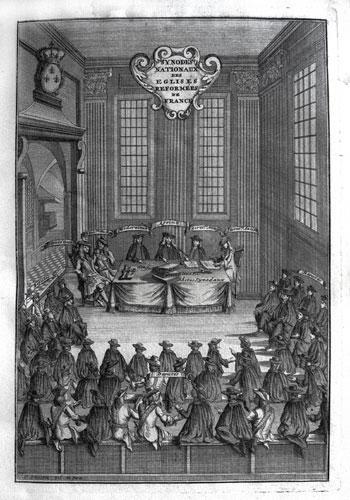
The organisation of the Reformed Church
The Reformed Churches were organised according to the order of 1559, as had been the case in the sixteenth century. They were ruled by a series of bodies at local,... -
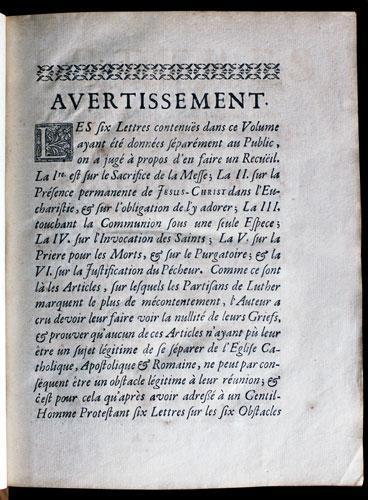
The theological controversies
The seventeenth century was the period when Catholics and Protestants were involved in great arguments (“controversy”) with each other, both oral and written, obviously fuelled by the theologians. -
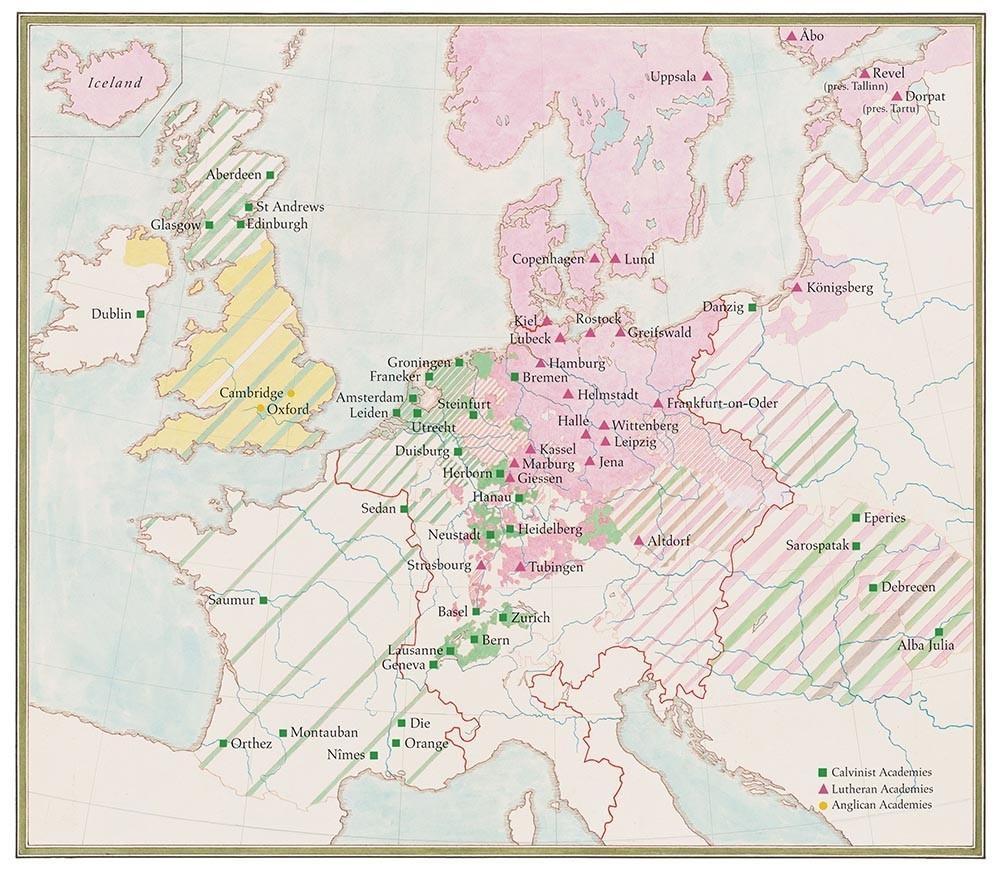
The Reformed Academies in the XVI th and XVIIth centuries
As early as 1565, the synods of the Reformed Churches undertook the training of pastors, encouraging churches to open colleges (a prerequisite for higher education) and universities or “academies” (after...
